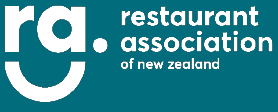Member only content
Savour is proudly brought to you by

-
Checking it Twice – Health and Safety Considerations for your Work Function
-
Why the hospitality industry supports a return to the office
-
Surviving Financial Strain: Restructuring Strategies for NZ Hospitality Employers
-
Rent Reviews Unveiled: The Ultimate Guide for Hospitality Tenants
-
The Vital Role of Reputation Management in the Hospitality Industry
-
Covering Your Bases: A Comprehensive Guide to Business Insurance in New Zealand
-
Understanding Trial Periods

Savour
The Magazine of the Restaurant Association of New Zealand
Addiction in the workplace and how to manage it
4 Nov 24Have you ever noticed a significant drop in performance, unusual behaviour, or excessive absenteeism from an employee?
You may notice that they feel exhausted all the time, have lost or gained a lot of weight, or appear untidier than usual. Or perhaps have become secretive about their activities and whereabouts, or they seem to be acting impulsively, more sensitive than usual, not taking breaks or having coffee with the team like they normally do, or complaining about financial issues?

Starting conversations about addiction with a colleague or employees who might have a problem [or had a problem] is a brave and important thing to do. It is also delicate because the person is probably worried about others finding out, or losing their job, which can be a real risk, especially if they are using alcohol or drugs in the workplace.
You don’t want to sound judgmental or accusatory, but you also need to communicate clearly about your limits as an employer and your expectations.
When people experience addiction, they are unable to stop pursuing the immediate feel-good sensation that certain substances provide, even when they know it’s hurting their health, relationships, and professional performance. Often, this is driven by a need to escape emotional or physical discomfort. Over time, addictive behaviour can turn into a vicious cycle.
Someone experiencing an addiction might not show up at work or miss deadlines. You may notice them making careless mistakes or making risky judgments, risking their own and others’ safety and well-being. Their behaviour may become edgy, they may be restless, or unpredictable, which in turn could be affecting their interpersonal relationships at work.
If someone is impaired in the workplace, they could put themselves or others at risk. People can be impaired by lack of sleep, stress, relationship breakdowns, external stress or pressures, prescription medication, or alcohol and other drug use.

Health and Safety legislation requires employers to ensure a safe working environment for all employees, and part of that is lowering the risk from impairment. There are many ways to reduce the risks to employees from impairment, and it starts with keeping lines of communication open.
Be prepared and offer proactive support
If an employee has something going on, Employee Assistance Programmes (EAP) and other health and social services can help them identify what is happening and come up with a plan. Building positive relationships in advance, and clearly communicating your processes, will enable quicker and easier access to these programmes when they are needed. EAP provides work-based short-term problem-solving and counselling services aimed at improving the emotional, mental and general health of employees. Regarding addiction specifically, EAP has two options – they can refer an employee through their formal Alcohol and other drugs [AOD] programme where feedback will be relayed to an employer, or EAP can treat the employee and book them in with a specialized AOD clinician without any feedback provided to the employer.
Show empathy
When dealing with addiction at work, it is critical to express concern without judgment or accusations. Instead of jumping to conclusions, say specifically what you have noticed and ask questions. Also, it is crucial to let the person know you’re offering support rather than promising a quick fix or loads of advice. Remember, recovery is possible.
Focus workplace policies on keeping staff employed
Recruitment, orientation, and training take time and resources – so it makes sense to work with existing employees to support them. Policies can be written in a way that promotes early identification of issues and flexible responses that are appropriate for the situation while prioritising keeping your staff members employed. Don’t let your managers overlook repeated absences or safety risks. A person is still responsible for their behaviour. Be clear about what you need as an employer and apply your policies and procedures.
Ensure confidentiality
Building trust and respecting the person’s privacy is essential. What they share should stay between you and your employee. You only need to involve others when there are concerns about a person’s safety. Be ready for any response. Some people will appreciate your concern and support, while others may become defensive. If they aren’t ready to talk, let them know that you are there in the future.
Have a focus on employee wellbeing and building trust
This could involve having an employee wellness programme that includes coverage for substance use problems, having regular conversations with employees about their wellbeing, and providing education and clear messages about how substance use can impact wellbeing and work. Or allowing them time off to attend rehabilitation and support them through the journey.
Understand the situation and be flexible in how you respond
The fact that someone has used alcohol or other drugs at some point does not necessarily mean they are currently impaired, or that they have an addictive pattern of use. Impaired performance can have serious consequences in some roles where safety and fast reaction times are paramount. It’s important to be clear about the actual impact of drugs on work performance.
Help your managers know how to best support their staff.
Clear and supportive conversations early in the piece can help to engage employees and prevent a difficult situation from getting worse. Support your managers to recognise issues before they become a problem, and help or train them to know how to have clear and supportive conversations with their teams.
Managing Health and Safety Risks
The last thing you want to happen when dealing with addiction at work is for the person who experiences these problems to feel pressured, judged, or stigmatised. The goal is not to confront the person but to let them know you care and are there to support them. Still, safety in the workplace is of the utmost importance. Therefore, be clear about unacceptable behaviour and encourage the person to seek support and treatment. In rare circumstances where there are serious safety concerns, then reach out to us so we can discuss with you possible solutions depending on your individual circumstances.
Put Safety First
Upon learning about addiction, the safety of the affected person and other staff members should be the immediate concern. In this situation, staying calm and deciding the following steps to prevent harm are essential. This can be done by temporarily modifying the person’s job duties and reassigning tasks while they recover. This would need to be agreed upon with the employee.
Random drug testing
Whether you are intending to randomly drug test staff, or specifically ask a person to drug test them, you should know that it’s almost impossible to achieve this in the hospitality industry. Even with various policies in place, there are still concerns within this area in employment law and how it could apply to the hospitality industry. Instead, you could use the symptoms of alcohol/drug abuse that you notice to do a disciplinary. You don’t necessarily need a positive drug test result to do a disciplinary. But we encourage you to contact the helpline team here at the Association (0800 737 827) first before you proceed with any process.
Set clear boundaries
It is important to ensure all employees understand the expectations and boundaries regarding behaviours in the workplace. Have a clear policy outlining what behaviours aren’t acceptable and the consequences for violating the policies, including around alcohol and drug use specifically. Also, it is essential to document the occurrences and steps taken to address the situation, as this ensures that the policies are applied consistently. If you have a Human Resources department, involve them to make sure you and the person are well supported.
Suggest asking for help
Encourage the person to seek help from their family, support groups, a professional such as their GP or a specialist addictions service. There is a list of places that can help below.
Being an employer, it is important you create an environment where employees feel comfortable seeking help. Encourage them to take advantage of the Restaurant Association’s employee assistance programme (EAP) or Clearhead. Also, be mindful of having a workplace that doesn’t encourage a culture of harmful substance use, such as ensuring work functions that aren’t focused on alcohol and having non-alcoholic beverage options.
If you need support please don’t hesitate to call the helpline to discuss.
Support Services in NZ
- Clearhead – a suite of self-help tools and an intelligent Wellbeing Assistant available 24/7
- Small Steps – A free online tool to help manage well-being, with tips and strategies on finding relief or helping friends or whānau
- Melon – An online community where you can anonymously interact with others with similar experiences and connect with a team of support workers.
- Depression.org.nz – An online self-help tool to support you with information, resources and guidance with navigating anxiety, depression and mental distress.
- Kina Families & Addictions Trust – online resource with information, support and advice to help with a loved one’s alcohol or drug use.
- Alcohol Drug Helpline: 0800 787 797
Local Support Communities
- Al-Anon Family Groups – community to help families with loved ones’ alcohol usage, with resources and tips on how to aid with recovery.
- NA (Narcotics Anonymous) – local community groups helping others recover from the effects of addiction. Groups help peers and offer an ongoing support network.
- AA (Alcoholics Anonymous) – local community groups providing help, advice and a support network to help with tackling alcoholism.
 Member only content
Member only content
Savour is proudly brought to you by

-
Checking it Twice – Health and Safety Considerations for your Work Function
-
Why the hospitality industry supports a return to the office
-
Surviving Financial Strain: Restructuring Strategies for NZ Hospitality Employers
-
Rent Reviews Unveiled: The Ultimate Guide for Hospitality Tenants
-
The Vital Role of Reputation Management in the Hospitality Industry
-
Covering Your Bases: A Comprehensive Guide to Business Insurance in New Zealand
-
Understanding Trial Periods